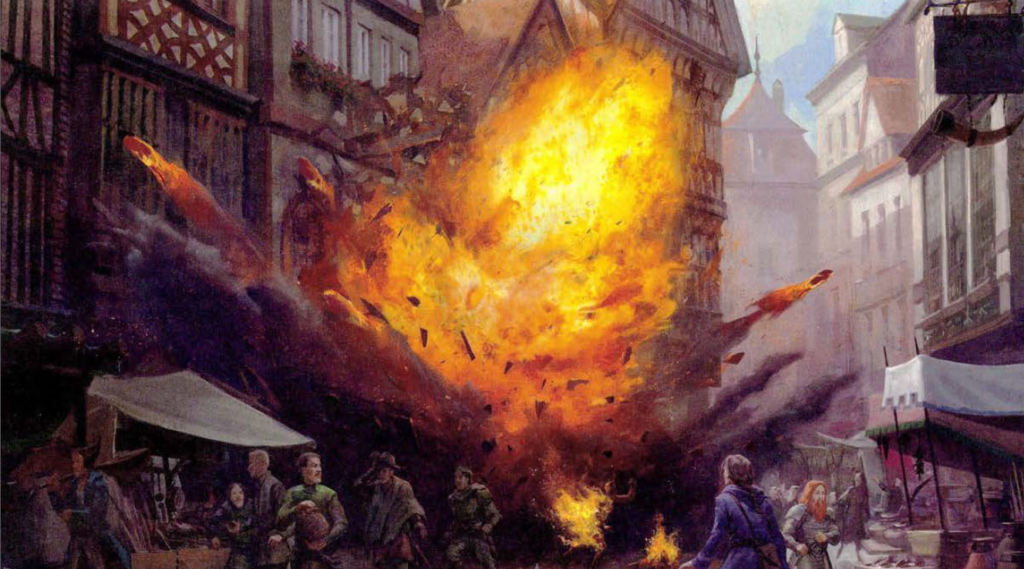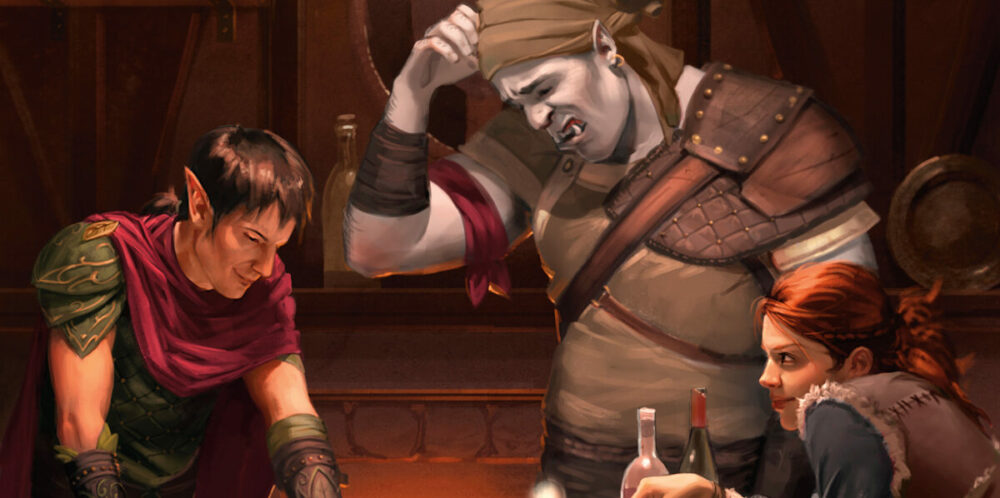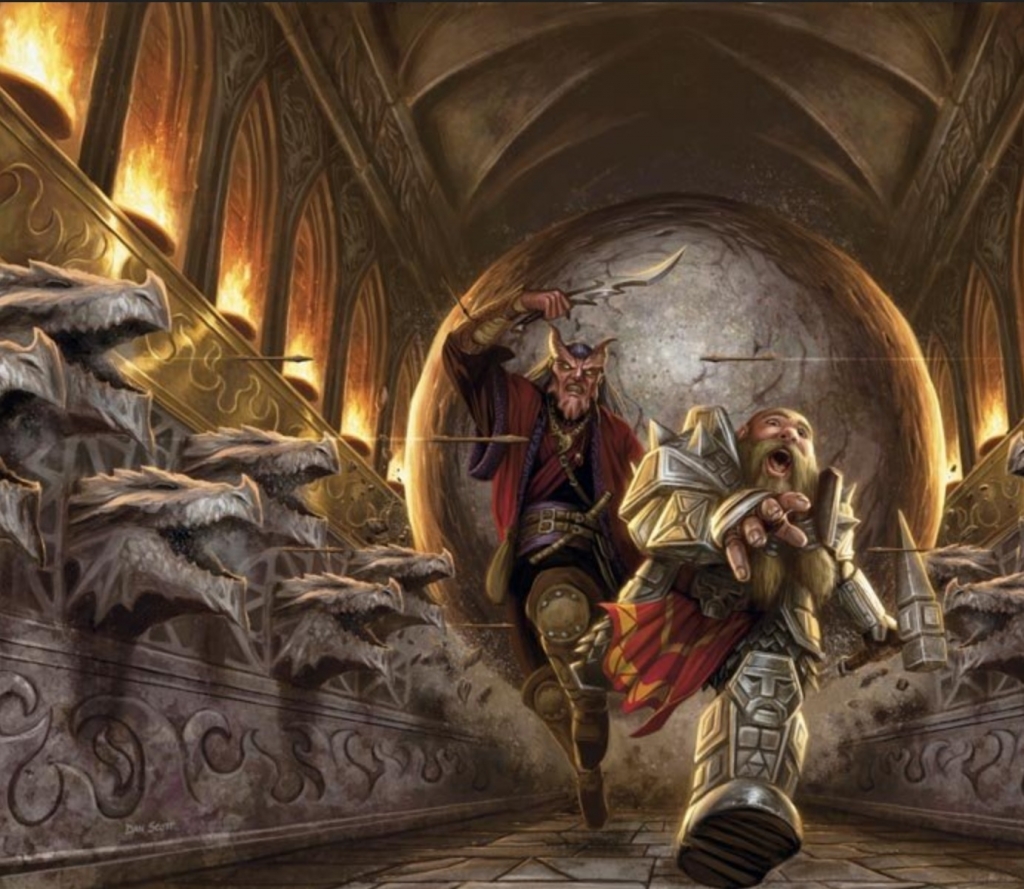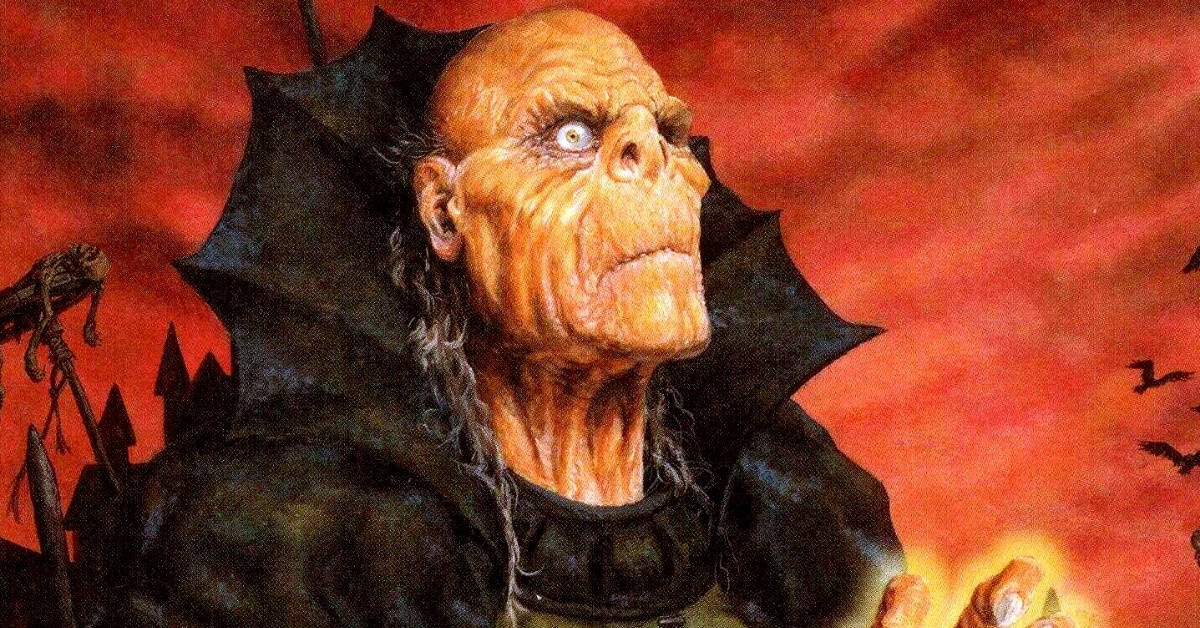It’s hard for characters to die in D&D, but even with that in mind, there are a few things that every player should watch out for.
Games end. If you’re lucky, they come to a satisfying end that leaves you with many emotions felling all sorts of kinds of ways. Buuuut just as often they might end when the DM gets bored, or accidentally puts the party up against a monster too tough to handle. Or people’s schedules stop lining up.
You may as well stack the deck in your favor by looking out for things that could get the whole party killed. Accidental or otherwise. If you want to see your campaign go the distance, here are five ways to not get everyone killed.
Remember That Friendly Fire Isn’t
Let’s start with the most obvious one, friendly fire. It’s a meme in its own right, and the reason that whole subclasses exist with features like, “you can exclude your friends from the area of this spell” or “allied creatures automatically save against your spells”. Because the designers know that sometimes you just can’t help but catch the party as well as those goblins in your fireball.
So if you’re going to be setting everything on fire, you may as well look for ways that let you not set your friends on fire while you’re at it.
Sometimes NPCs Have Useful? Information?
When you’re about to head into the wilds and/or a dungeon, one of your best friends can be knowledge. Which is also power. It’s power and it’s your friend. And it’s often in the possession of helpful NPCS (well, technically your DM has it, but you know, the NPCs are the filter through which it is parsed). They can do more than just tell you what quests are out there or that “times are tough.”
Talking to NPCs can help you get the lay of the land if you listen to and believe them. Then you’ll know what’s out there. Or even that “Grakthar the Ebonmind” hates puppies or something. And knowing, as the late 80s and early 90s taught us all, is half the battle.
Talking Back to the “Important” NPCs
Look, it’s understandable. We’ve all been there. Everyone does it, from the most professional players in an AP to the chaos gremlins at your local table. When one of those dang stuck-up NPCs, that’s either got a high opinion of themselves or demands you speak to them with the respect they think their station is due.
It’s no fun to kneel when the would-be lich-queen tells you to kneel. But sometimes, not mouthing off to the monstrously powerful NPC is a way to avoid a terrible fate.
Remember That Sowing Leads to Reaping
It is so much fun to sow. It is much less fun to reap; depending on what you’ve sown. Not that that should influence your every decision, but remember that your party’s actions can, and often will, have lasting consequences on the world is good to know.
The phrase “murderhobo” gets tossed around a lot, because adventurers may tend to wander around from place to place, killing the XP and treasure out of the local environment without a thought as to why or how they relate to others. But that doesn’t have to be the way! Oftentimes, making friends can lead to unexpected allies in clutch moments.
And taking the time to check the room for traps before you go rushing in can keep you from summarily rushing out.
Don’t Taunt the DM
Look, if you really want to ensure that everyone dies in a fire, all you really have to do is start talking smack about the encounters you’ve faced. Sure, D&D 5E makes it hard to kill off a character. But just you start suggesting that the fights you’ve faced are too easy or that, “the DM would never put us up against more than we can face, relax, we don’t even have to try” and boom, instant TPK. A wounded ego is the deadliest weapon in D&D.
But if you would rather live, maybe don’t taunt the Happy Fun Ball.
Good luck out there, that last one may be the most important tip of all.
Don’t Miss:
Read more at this site




